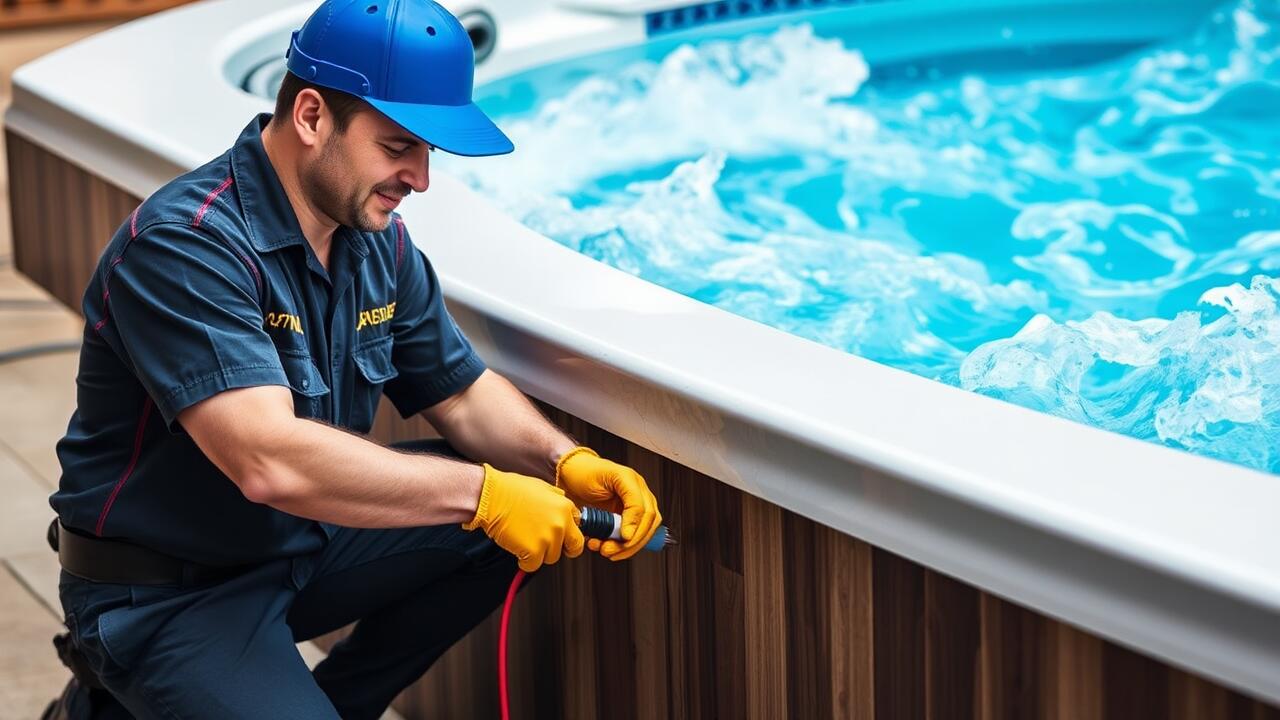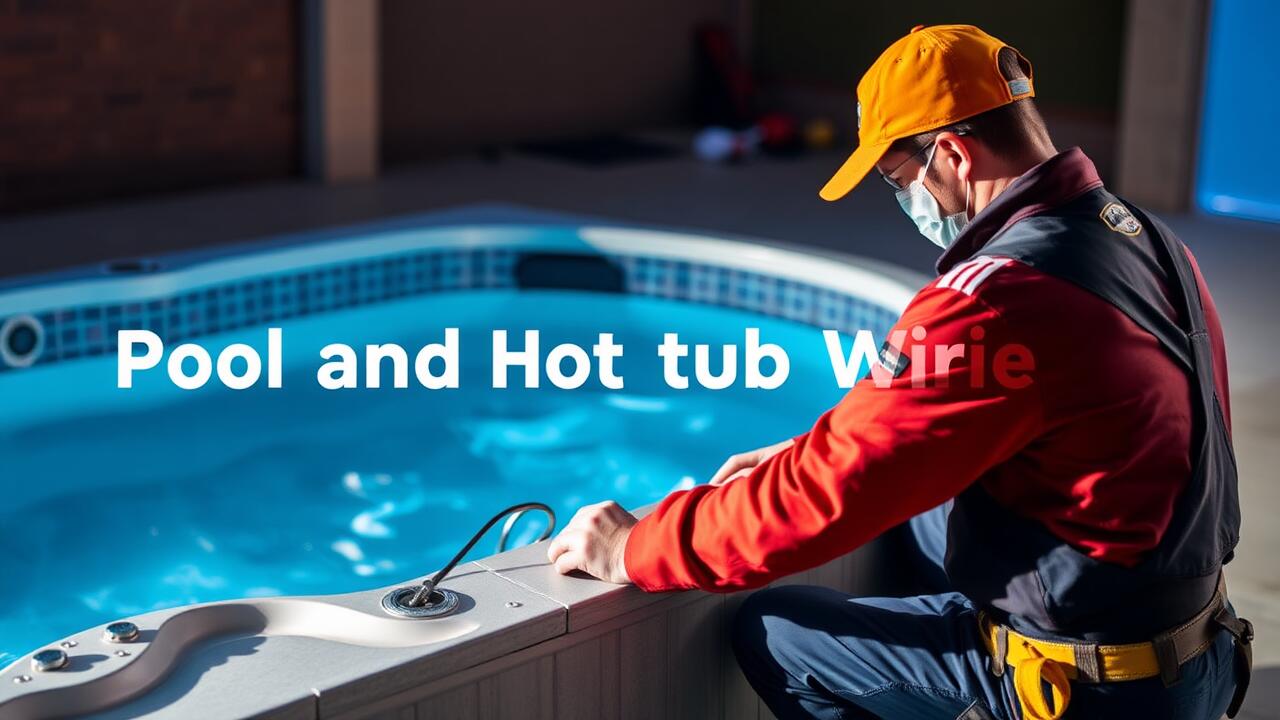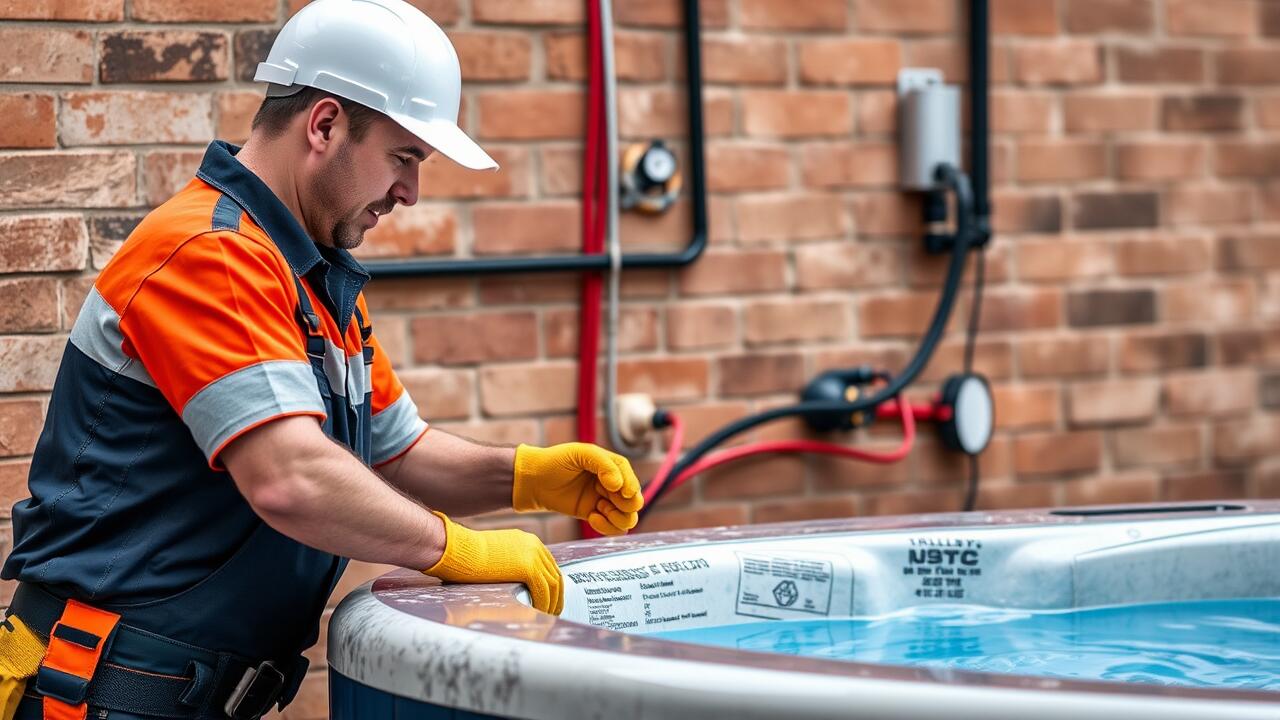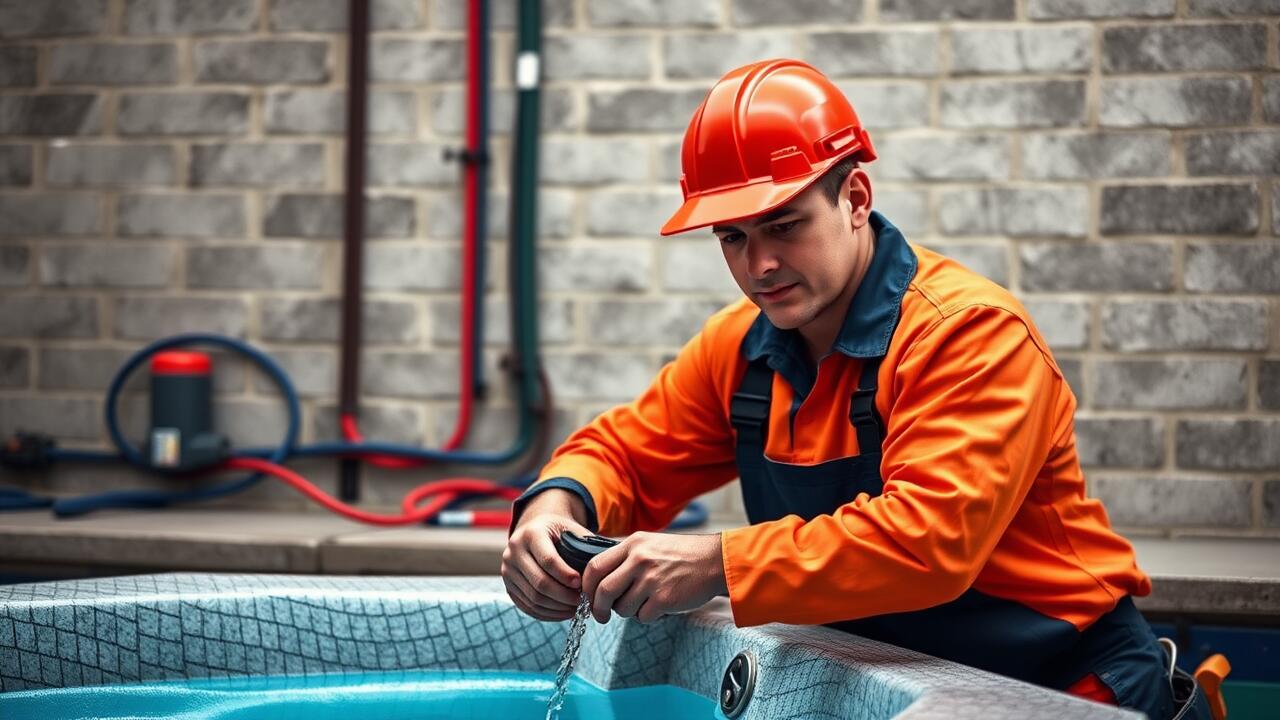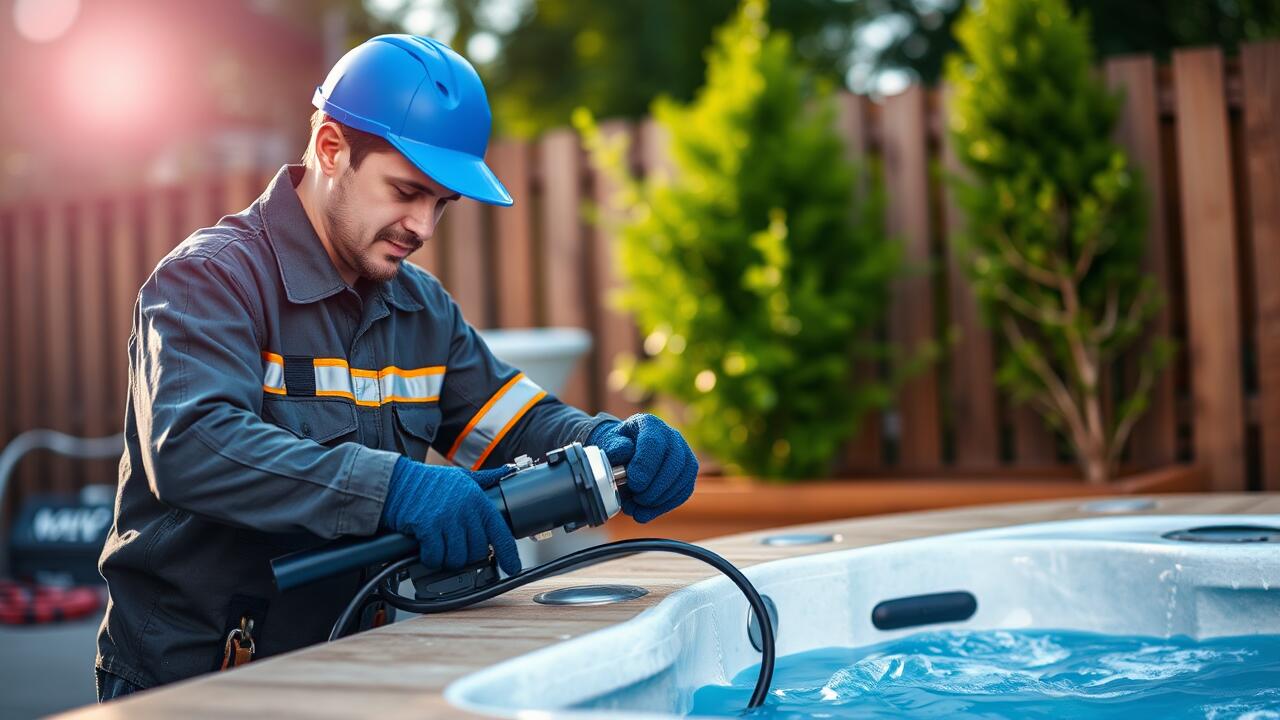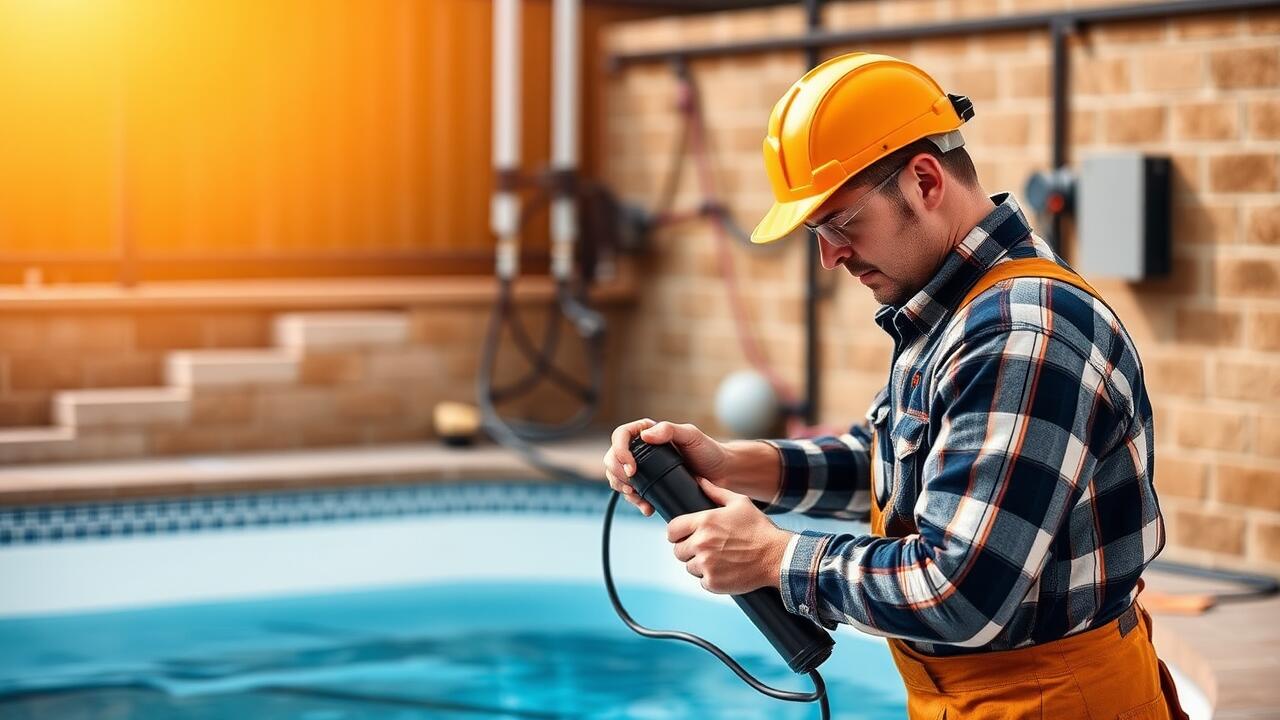
Steps to Properly Bury Hot Tub Wiring
Properly burying hot tub wiring is essential for safety and compliance with local codes. First, determine the appropriate depth for the burial, which typically varies by jurisdiction. Generally, wiring must be buried at a depth of at least 18 inches for direct burial or 12 inches if using a conduit. Mark the proposed path for the trench to ensure a clear and precise installation, avoiding any existing underground utilities.
Next, prepare the ground by removing any sod, rocks, or debris from the area. Dig a trench that not only meets the required depth but also provides a slight incline away from the hot tub to allow for water drainage. Once the trench is ready, you can proceed with laying the necessary wiring, ensuring that you follow any specific guidelines that might apply to Pool and Hot Tub Wiring in Gulfton, Houston. Adequate planning and execution make a significant difference in the longevity and safety of your installation.
Preparing the Ground and Trenching
Preparing the ground for hot tub wiring requires careful planning and execution. Start by determining the path your wiring will follow from the power source to the hot tub. It’s crucial to clear any debris, grass, or large rocks along this route. Mark the area where the trench will be dug to ensure you maintain a straight line. For projects like Pool and Hot Tub Wiring in Gulfton, Houston, you should ensure that all underground utilities are accurately located before proceeding with any excavation. This precaution helps avoid any potential hazards during the digging process.
Trenching involves digging a channel that is deep enough to accommodate the wiring and conduit you intend to use. Generally, a depth of 18 inches is recommended for direct burial of electrical cables. Ensure the trench is wide enough to comfortably fit the conduit as well. Use a shovel or a trenching machine for larger projects to maintain efficiency and accuracy. After digging, it's wise to smooth the bottom of the trench to create a stable base for the conduit. Being diligent during this step will contribute significantly to the safety and longevity of your hot tub wiring installation.
Local Regulations Impacting Wiring Installation
Local regulations play a crucial role in the installation of wiring for hot tubs. Different cities and states may have specific codes that dictate how electrical systems must be installed, particularly for outdoor fixtures like hot tubs. These regulations are designed to ensure safety and compliance with industry standards. In areas such as Gulfton, Houston, adhering to the local codes is essential to avoid penalties and ensure that the wiring meets the community safety requirements.
When considering Pool and Hot Tub Wiring in Gulfton, Houston, it is important to consult the local building department. This helps to identify any permits needed for installation and provides guidelines on acceptable practices. Professionals in the area may also be familiar with the most recent regulations, which can change frequently. By understanding the local requirements, homeowners can ensure that their hot tub wiring is installed properly and safely.
Checking with Local Authorities
Before starting any wiring project for your hot tub, it’s crucial to check with local authorities. Local building codes and regulations may stipulate specific requirements for burying electrical wiring, especially for outdoor installations. These regulations help ensure safety and compliance with national standards. Understanding these requirements can prevent potential issues such as fines or delays in the installation process.
In areas like Sharpstown, Houston, having clear communication with local officials can provide insights into any unique zoning laws or electrical codes applicable to your project. It may also be beneficial to inquire about any necessary permits that need to be secured before work begins. This proactive approach not only safeguards your investment but also enhances the safety of your hot tub installation by adhering to the legal framework surrounding Pool and Hot Tub Wiring in Sharpstown, Houston.
Materials Needed for Hot Tub Wiring
When setting up wiring for a hot tub, it is essential to choose the right materials to ensure safety and compliance with local codes. Start with appropriate wiring, which typically consists of a high-quality, weather-resistant cable rated for outdoor usage. For most installations, you will need to use a minimum of eight-gauge wire, especially if the hot tub requires a significant amount of current. Grounding and bonding materials are also crucial to protect against electrical faults.
In addition to the wiring, you will need conduit to protect the cables. PVC conduit is a popular choice for its durability and resistance to environmental factors. Ensuring that all junction boxes are rated for wet locations is important too. Adhering to these guidelines will help guarantee a safe setup when considering Pool and Hot Tub Wiring in Gulfton, Houston. Always prioritize local electrical codes and standards during the installation process to avoid complications.
Recommended Cables and Conduit
When selecting cables for hot tub wiring, it’s crucial to choose materials that are rated for outdoor use and can withstand moisture. A common choice is a four-conductor wire, specifically designed for pool and spa installations. These cables often come in a UF (Underground Feeder) type, ensuring durability and safety against environmental factors. Local codes often dictate the specifics, but ensuring your wiring is appropriate for the usage scenario is key to a safe setup.
Conduit is equally important in the wiring process, providing an added layer of protection against physical damage. Schedule 40 PVC conduit is frequently recommended for underground installations because of its robustness and resistance to corrosion. When considering Pool and Hot Tub Wiring in Gulfton, Houston, ensure that the gauge of the wire aligns with the power requirements of your hot tub, as well as local electrical codes. This ensures compliance and longevity of the installation.
FAQS
Does hot tub wiring need to be buried?
Yes, hot tub wiring typically needs to be buried to comply with safety regulations and to protect the wiring from damage.
What depth should the wiring be buried?
The recommended depth for burying hot tub wiring usually ranges from 18 to 24 inches, depending on the type of conduit used and local regulations.
What kind of conduit should I use for burying hot tub wiring?
It is advisable to use PVC or rigid metal conduit for burying hot tub wiring as they provide adequate protection against physical damage and moisture.
Are there any local regulations I need to consider when burying hot tub wiring?
Yes, local regulations can vary significantly, so it is essential to check with local authorities to ensure compliance with specific wiring codes and requirements in your area.
Can I install the hot tub wiring myself?
While it is possible to install the wiring yourself, it is highly recommended to consult with or hire a licensed electrician to ensure safety and compliance with electrical codes.
